Purchasing and owning a horse is an expensive endeavor. Aside from the initial purchase price, horses require food, shelter, and proper veterinary care to stay happy and healthy. These bills can add up to thousands of dollars a month – making that initial investment will start to seem like chump change in the long run.
If you’re looking to lower the cost on the initial purchase price of your next equine companion, this article lists 9 of the cheapest horse breeds money can buy.
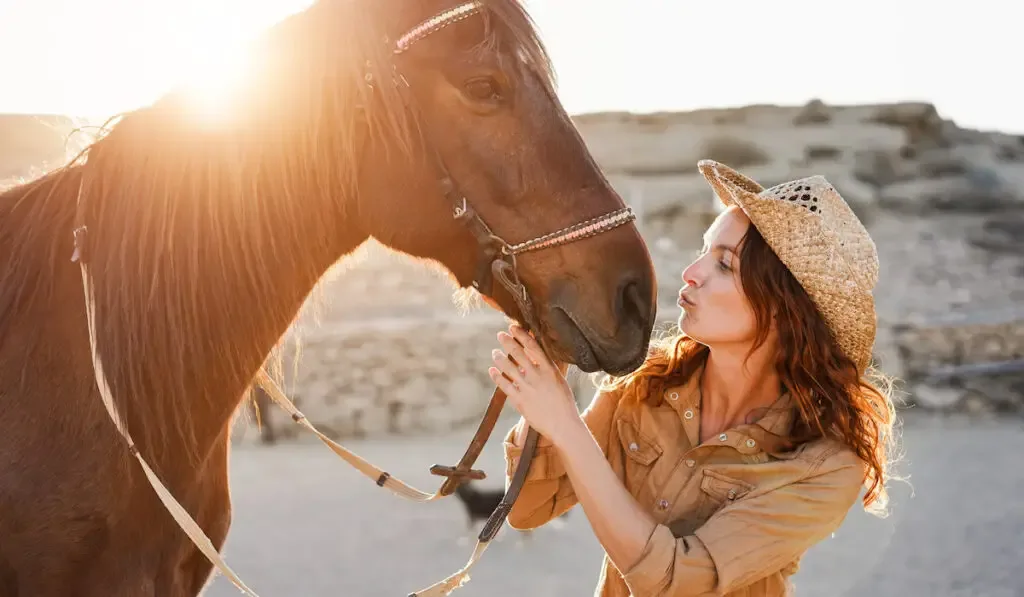
How much does a horse cost?
You must consider many factors when it comes to owning a horse. This handy worksheet and this handy calculator from Horse Illustrated can help you get started.
Here are some of the biggest equine-related expenses – and some of these bills come due every month!
- Initial purchase price. Depending on the horse, this can range from $0 to millions of dollars. Some basic factors that influence cost include age, sex, training, bloodlines, health, shipping, maintenance, desired discipline, and temperament.
- Feed and supplements. A large draft horse may require more food than a tiny miniature pony, and some horses need expensive supplements to keep them feeling their best.
- Shelter. If you don’t have your own horse property, you’ll probably have to pay someone to shelter your horse for you.
- Veterinary care. Emergency vet visits are expensive, and horses love getting themselves into trouble. They also need yearly deworming, physicals, and vaccines.
- Dental Floating. An equine dentist needs to check your horse’s teeth and file them down if necessary.
- Farrier. Even if your horse doesn’t need shoes, he still needs his feet trimmed every 6-8 weeks.
Some breeds are more popular than others, making them widely available all over the country. Some breeds are known to have expensive health problems that can keep the veterinary bills high. And some horse breeds have long, elite pedigrees that can inflate the cost for even just the breeding rights.
If you know that a fancy, rare breed isn’t going to be for you, check out these less expensive options.
Mustang
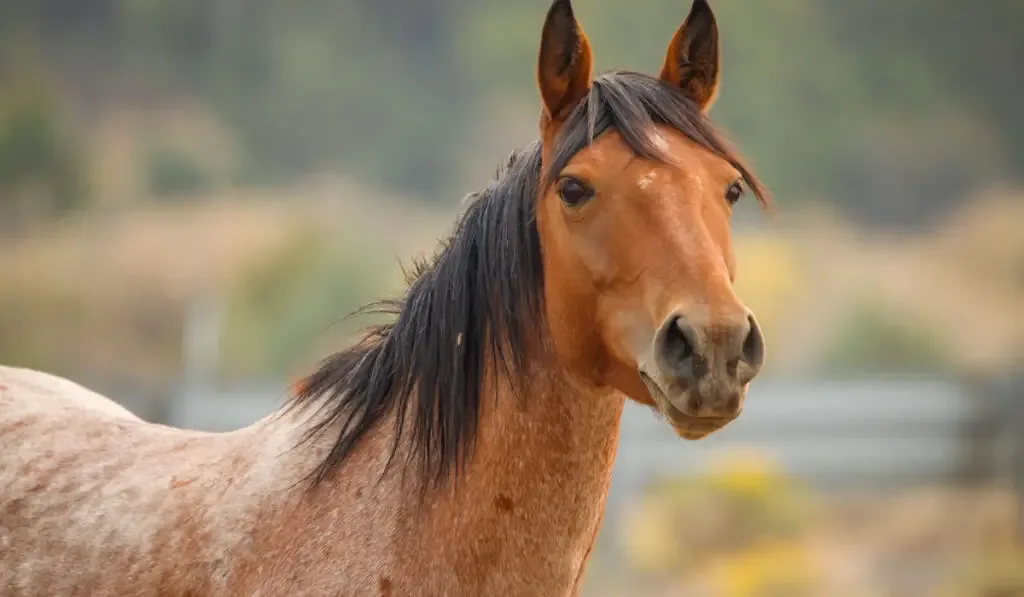
Lowest Cost: $25 – $125 adoption fee from the Bureau of Land Management (BLM). Qualified candidates can also receive up to $1000 for adopting a wild mustang. (source) (source)
Mustangs are feral horses that freely roam the American West and are protected by the federal government. When their populations become unmanageable for the land they inhabit, the BLM will round up excess animals and adopt them out to new homes.
These wild horses can then be trained for nearly every discipline you can think of – ranch work, trail riding, eventing, even dressage!
The BLM adopts out mustangs for as low as $25 – $125. However, once they have been gentled and trained for a new domestic life of a pampered pet, the purchase cost can increase quite a bit. Mustangs are known to be hardy and fairly healthy, but spending a lifetime in the wild can present some unique challenges if you’re inexperienced.
You can learn more about adopting a wild mustang at the BLM’s website here.
Thoroughbred
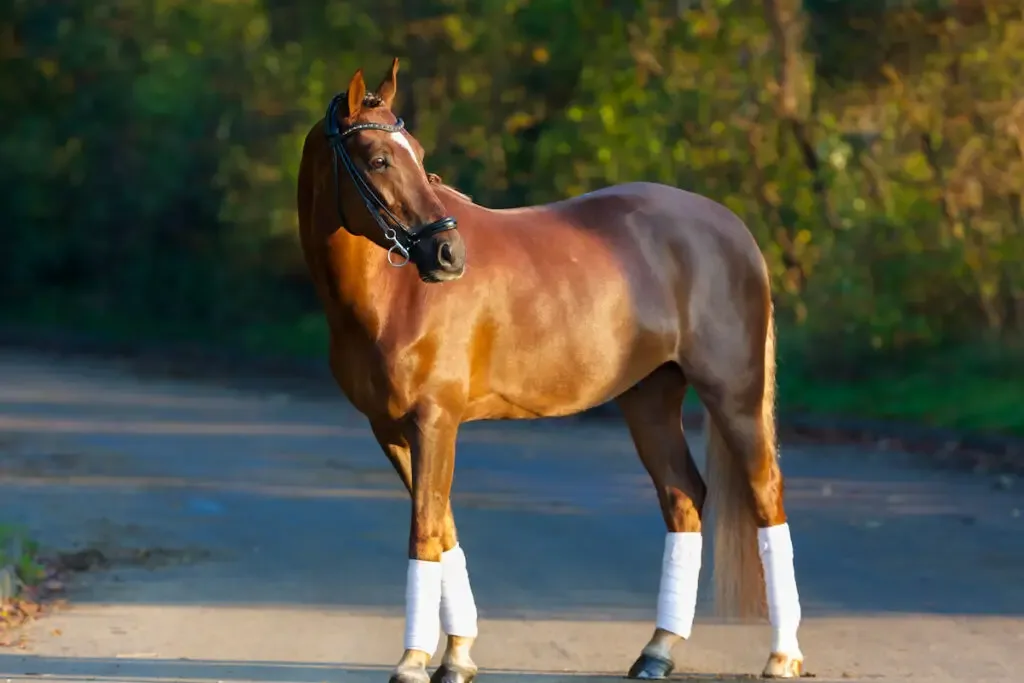
Lowest Cost: $500 – $1000 adoption fee through CANTER
While it’s true that some of the most expensive horses ever sold were Thoroughbred racehorses ($70 million!), most of them do not fetch such high prices. Thoroughbred horse racing is a billion dollar industry, and thousands of expensive speed machines are bred and raised every year for the track. (source)
While some of these elite Thoroughbreds will race until they’re well into their teens, many of them retire before the age of 4. They are then adopted or sold to new homes with careers in jumping, eventing, or pleasure riding.
Because thousands of these horses are retired from the track each year, getting your hands on one isn’t usually difficult. Several factors will impact the cost of an off-the-track Thoroughbred (“OTTB”):
- Training. OTTB’s are trained to race and must be properly re-educated to be suitable for other disciplines. Depending on how much time the horse spent as a racer, this can sometimes be quite challenging. A young untrained OTTB will generally cost less than an experienced show horse.
- Health. Thoroughbreds are prone to injuries during their short racing careers. They can often recover with no problems, or the injury can have an impact on the horse for the rest of its life. Because they’re bred to be light and fast, these slender horses can sometimes be difficult keepers and require expensive feed or supplements. The purchase of an OTTB can be cheap at first, but costly in the long run.
- Temperament. Thoroughbreds have a reputation for being “hot” – nervous or difficult to work with. After all, they’re athletic and bred to run fast! A calm, well-trained Thoroughbred may be more expensive than an anxious one right off the track. They are known for having big hearts, so a spooky horse that trusts his rider could still be the perfect match.
Many organizations adopt Thoroughbreds to the public. Check your local rescue, CANTER, or Equinenow.com to find a Thoroughbred in your area.
Standardbred
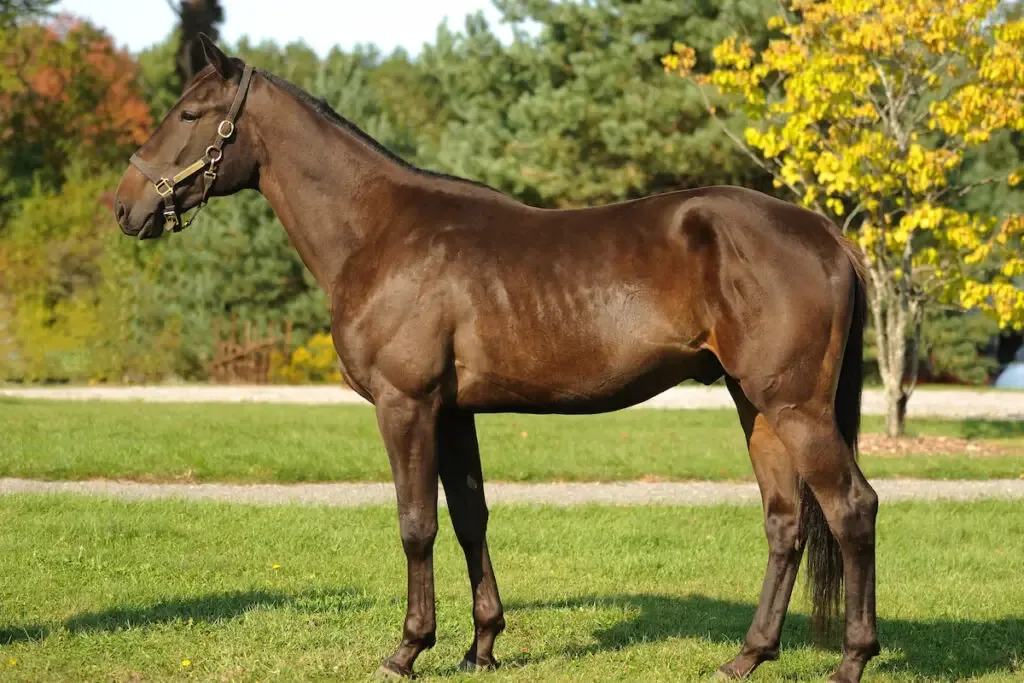
Lowest Cost: $350 – $1250 adoption fee from Standardbred Retirement Foundation. (source)
Like Thoroughbreds, Standardbreds can fetch a high price on the racetrack and a relatively low price once they’re off. While you won’t find many retired Standardbreds in the eventing or jumping arenas, these solid horses can make excellent driving, trail, or pleasure mounts for the right families.
They tend to be easy to train and willing-to-please, and they don’t have the reputation for being as anxious as their Thoroughbred cousins. A big-boned Standardbred with a good attitude and good gaits (if you don’t mind the pacing) can be a diamond in the rough.
Unfortunately, many Standardbreds are sent to slaughter after the window for their usefulness has passed, whether it’s off the track or retiring from hard farm work.
While they may be very inexpensive to purchase, they often require a lot of rehabilitation and may be unfit to ride or drive. With that in mind, if you’re looking for a good-natured companion horse for a low price, a retired Standardbred can be a great choice.
Quarter Horse
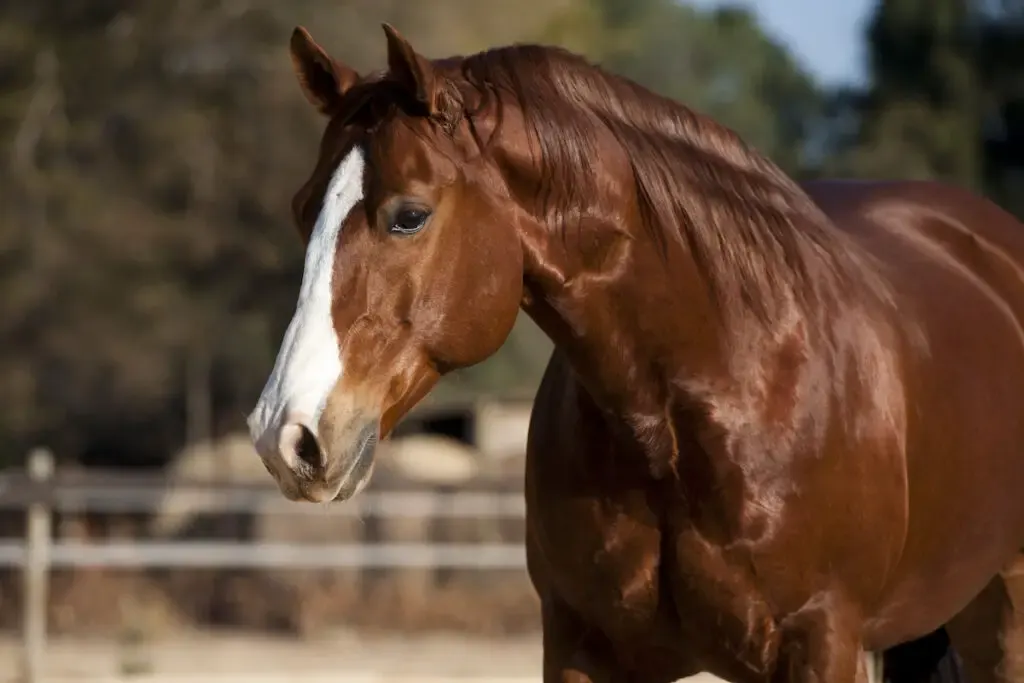
Lowest Cost: $1000
Quarter Horses are one of the most popular breeds in the US, and for good reason. They’re smart, hardworking, and can be used for nearly any discipline. While Quarter Horses from elite bloodlines can fetch thousands of dollars, you can often find a decent Quarter Horse for $1000 – $5000.
Spending a little more will ensure that you get a QH that is in good health and has proper training, but you can find a good deal from someone who needs to make a quick sale.
Also, Quarter Horses are popular to mix with other breeds such as Arabians or Thoroughbreds, which can result in a lower purchase price as well (especially if the offspring is unregistered). You can adopt retired racing Quarter Horses from various organizations around the country.
Arabian
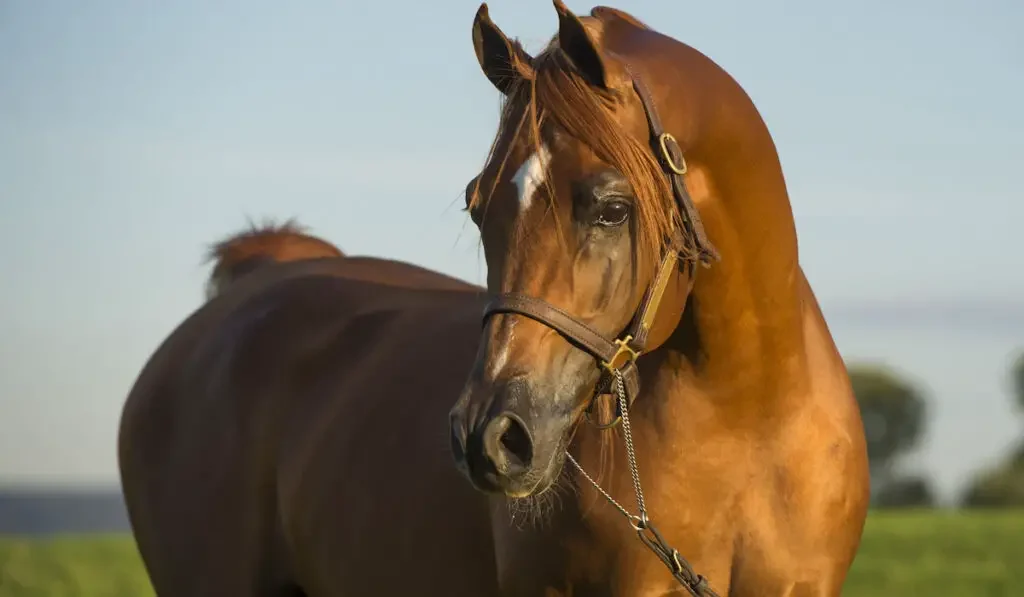
Lowest Cost: $500
Arabians are popular for their charming good looks and quirky personalities. They can be used in nearly every discipline, from racing and endurance to dressage and showjumping. They’re versatile, smart, and big-hearted – Arabians love their people.
However, Arabians can often be labeled as “too hot to handle” by those who aren’t experienced with them. They also tend to be a small and sensitive breed, and can’t support larger or more inexperienced riders.
This can contribute to many Arabians ending up in rescue situations, especially once they’ve outgrown their usefulness.
Rescued Arabians will be cheaper to purchase but can be more expensive to own in the long run between rehabilitation and retraining. However, you can find young untrained Arabians for a relatively low cost as well.
Tennessee Walking Horse
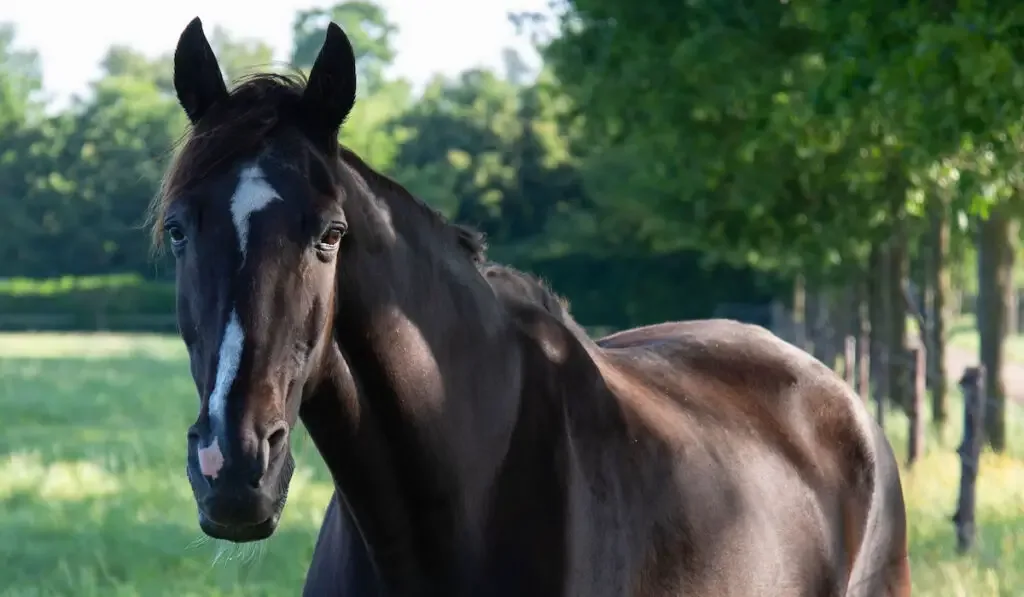
Lowest Cost: $500 – $1000
Like with Quarter Horses, champion bloodlines can cost a pretty penny when it comes to the Tennessee Walking Horse. They’re superstars of the show ring, comfortable to ride, and eager to please their human companions.
Plenty of Tennessee Walking Horses end up as backyard children’s horses, retired brood mares, or older geldings that need a new home. Not everyone appreciates their unique running walk or different conformation.
For a smooth trail horse that may just need a little TLC, you can find a nice Walker relatively inexpensively if you know where to look.
Miniature Horse
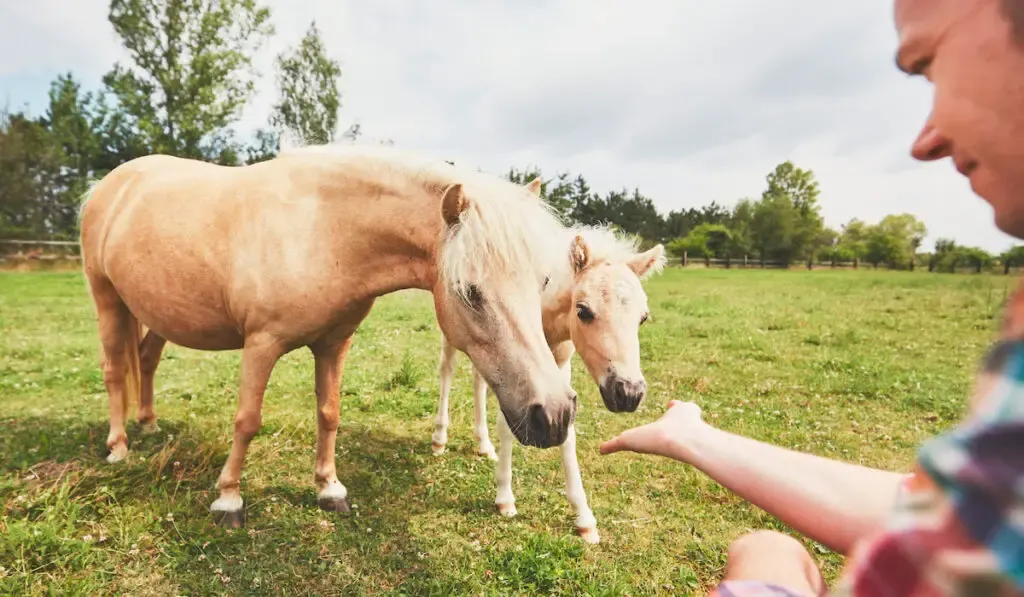
Lowest Cost: $200 – $500
If you’ve always wanted a horse but didn’t want to shell out for a full-sized equine friend, a Miniature Horse might be right for you. While they still require all the same care and attention as their larger counterparts, minis are generally easy keepers and make good companion animals to both horses and humans alike.
Because they’re too small to be ridden, they tend to cost less overall. They also don’t require expensive training, although they need to be taught basic ground manners for easy handling. For the right family, a young miniature horse can offer all the same benefits as a large horse or pony for a fraction of the cost.
Grade Horse
Lowest Cost: $500
If a horse comes from unknown or unidentifiable bloodlines, it will often be called a grade horse. This term can also refer to horses with significant crossbreeding in their pedigrees. While a grade horse isn’t technically a breed, you can sometimes find a pretty nice horse for cheap.
Good bloodlines are valuable, and accidental breedings or rescue situations can lower the purchase price considerably.
You can find a diamond in the rough with a grade horse, especially if you have a general idea of what breeds have been mixed. However, horses with poor breeding can have significant conformational faults or genetic health problems that can be expensive down the line.
Grade horses may also come from unknown backgrounds, and require a lot of retraining or rehabilitation.
Even the ugliest horses can be wonderful companions, so don’t overlook a grade horse just because he may be a little ugly or awkward.
After all, some of the greatest champions in the show ring were unregistered mixed breeds. Imagine if the legendary showjumping champion Snowman had been written off as just a basic “draft cross” grade horse! (source)
Rescue
Lowest Cost: $250 – $500
Every year, thousands of horses end up in rescues or kill pens bound for the slaughterhouse. Some are old, injured, no longer rideable, or there through no fault of their own. These unwanted horses are sold for meat price-per-pound and shipped to Canada or Mexico for processing.
They can have some of the fanciest bloodlines, impressive show careers, or the best temperament and training and still end up in a rescue situation.
While the meat price for a horse is around $.50 – $.70 a pound, rescuing can still be quite expensive. Most rescue horses require some sort of rehabilitation from illness or injury, and they likely need special handling and training to properly come back into work.
If you’re willing to put the time, energy, and potential money into the horse down the road, a rescue can make a wonderful equine partner.
Final Thoughts
While it may seem tempting to pick up the least expensive horse you can find, be sure that you’re ready for the commitment.
A “free” horse is rarely free, and vet bills and other expenses can add up quickly.
Still, there’s no need to pay a premium for a casual pleasure horse if you never intend to shell out for the show ring.
Take your time and you’ll be sure to find the perfect horse breed for you!

